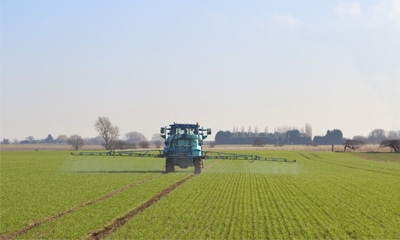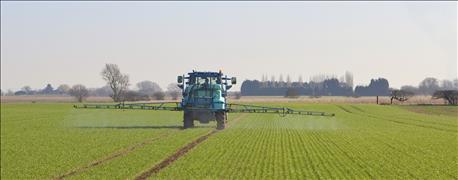July 27, 2016

The Nebraska Corn Growers Association (NeCGA) says Nebraska farmers' ability to use one of their most effective weed control strategies is in jeopardy thanks to a draft report issued by the U.S. EPA.
The EPA report proposes to reduce the acceptable levels of atrazine, a herbicide used in growing the majority of the corn and sorghum in Nebraska and the nation. Agricultural groups across the nation, including NeCGA, have expressed outrage at the proposed changes, noting that EPA is basing its recommendations on studies that even its own scientific advisers found flawed.

CORN GROWERS URGE ACTION: Ag groups across the nation, including NeCGA, have expressed outrage at the proposed reductions in acceptable levels of atrazine.
"Federal law requires EPA to make its determinations based on credible scientific evidence, and that is clearly not the case here," says Larry Mussack, a Decatur farmer and president of NeCGA. "Atrazine is a safe and effective crop management tool for farmers for combating the spread of resistant weeds."
According to Mussack, more than 7,000 scientific studies have found atrazine to be safe, making it one of the most rigorously tested crop management tools in the world. "It's especially disturbing that EPA is stomping science into the dirt and basing its ecological risk assessment for atrazine on studies that their own science advisory panel pronounced as 'flawed' just four years ago," he says.
EPA is recommending the level of concern (LOC) for aquatic life be set at 3.4 parts per billion on a 60-day average, down from the 10 ppb the EPA currently recommends. However, scientific evidence points to a safe aquatic life LOC at 25 ppb or greater, according to the National Corn Growers Association.
According to NeCGA, the proposed levels would cut average field application rates down to 8 ounces, or 1 cup per acre. An acre is about the size of a football field. "At the proposed levels, atrazine would be rendered useless in controlling weeds in a large portion of the Corn Belt, effectively eliminating the product," Mussack says.
NCGA has urged farmers to submit their comments as soon as possible, which they can do online at ncga.com/atz. EPA representatives signaled in June they intend to extend the public comment period on the preliminary ecological risk assessment for atrazine from Aug. 5 to Oct. 4. NCGA was among several organizations requesting extension of the comment period.
Sources: NeCGA, NCGA
You May Also Like




